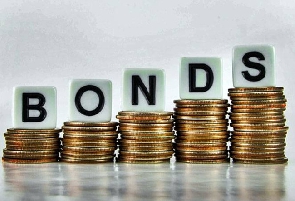At the latest foreign exchange forward auction held in late March, the Bank of Ghana put up another US$50 million on sale for future delivery across tenors ranging from seven to 75 days.
Most notably, the slump in demand at the previous forward auction – which saw demand fall short of the amount offered for the first time since forward auctions were introduced in late 2019 – was not repeated; at the most recent auction US$80.5 million was demanded, this being 1.61 times the US$50 million offered and actually sold.
Crucially however the bids made suggest that the resumed high demand was the result of increased need for forex as soon as possible rather than speculative worries over its availability going forward.
Indeed, the highest bids were for the shortest future delivery tenors, indicating that forex users and the banks bidding on their behalf actually expect exchange rates to fall marginally over the coming weeks rather than rise.
Currency market analysts suspect that these bid rates were influenced by expectations of higher availability of forex imminently as Ghana was preparing to do its largest Eurobond issuance – of up to US$5 billion – since it began accessing the international capital market in September 2007.
Eventually however, although bond investors offered US$6 billion in all, government only accepted US$3 billion worth of offer0s, asserting that the other offers were with coupon rates that were unacceptably high. This itself though indicates that government is comfortable with its gross international reserves position and its capacity to fund the forex market, both the spot market and that for future delivery.
Altogether there were 83 bids, of which the BoG accepted 52. Instructively more than half of the bids – 43 – were for delivery in seven days, of which 26 bids were accepted. In consonance with this those bids cumulatively added up to US$47.5 million – again more than half of total cumulative demand – of which the central bank accepted US$29.75 million.
The number of bids, and the cumulative amounts bid for declined in line with the increasing length of the delivery time, with only two bids, for US$1.0 million being made for delivery in 60 days, both of which were accepted.
There were 25 bids, adding up to US$22.0 million for delivery in 15 days of which 14 bids, for US$11.5 million, were accepted, There were nine bids, totaling US$7.5 million for delivery in 30 days, of which six bids, for US$5.25 million in all, were accepted. All for bids for delivery in 45 days, amounted to US$2.5 million, were accepted.
Instructively though no bids were made at all for delivery in 75 days. The overall trend suggests that bidders require forex as soon as possible, indicating rising business confidence which is translating into plans for increased business volumes.
Most interestingly, this immediate effective demand is despite the indicated expectations of most bidders that the cedi will appreciate marginally against the dollar over the coming weeks, ostensibly in response to increased supply of forex as part of the impending Eurobond proceeds become available; or simply that the resultant increase in Ghana’s gross international reserves arising from the issuance will boost currency market confidence in the cedi’s exchange rate.
Bids for delivery in seven days ranged between GH¢5.6900 and GH¢5.7419 to the dollar while bids for delivery in 45 days ranged between GH¢5.6894 and GH¢ 5.7125 and for 60 days, between GH¢5.6900 and GH¢5.6942.
Business News of Thursday, 8 April 2021
Source: goldstreetbusiness.com

















